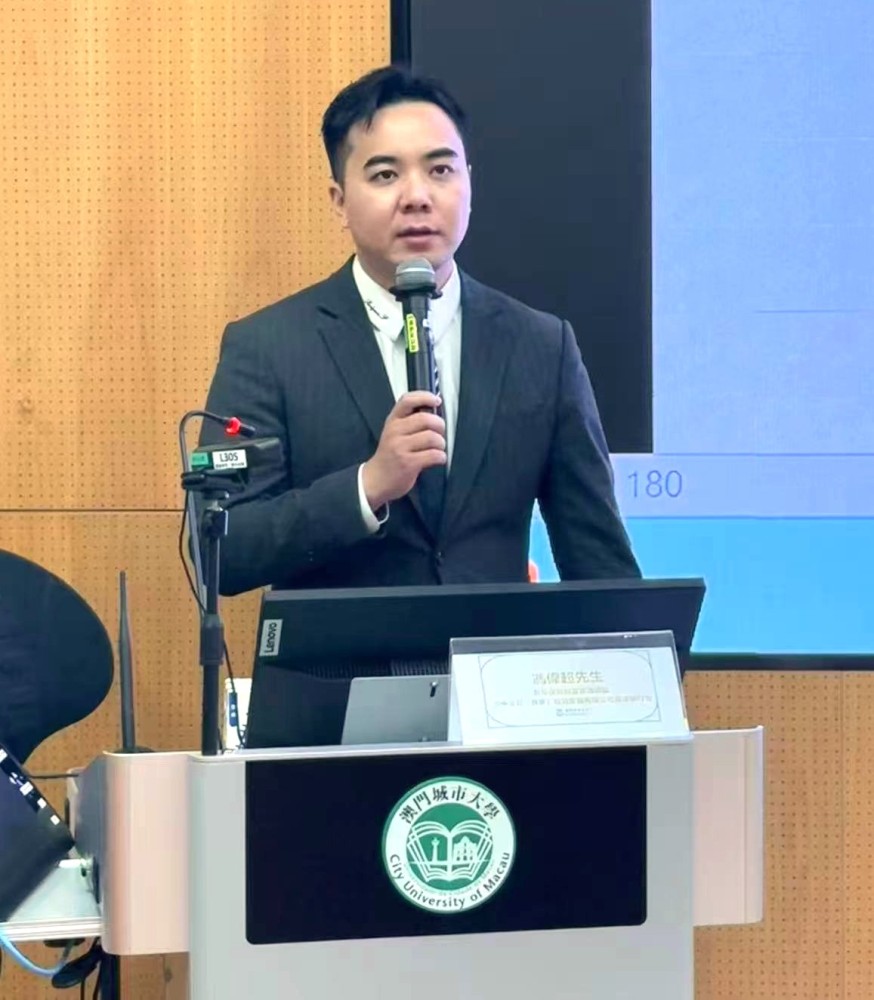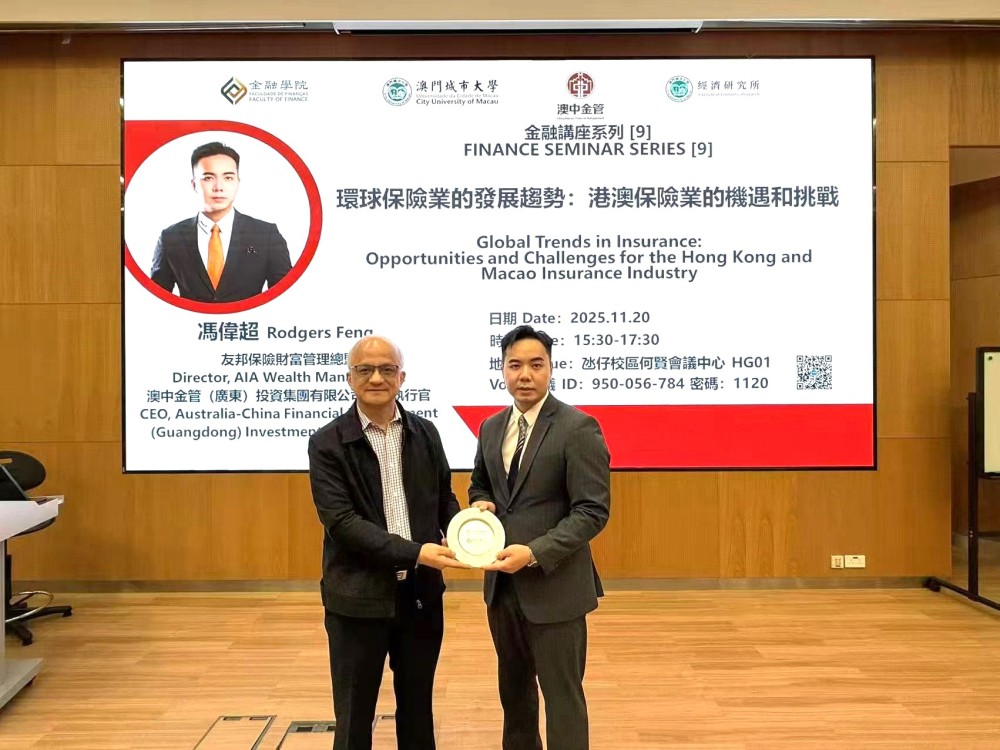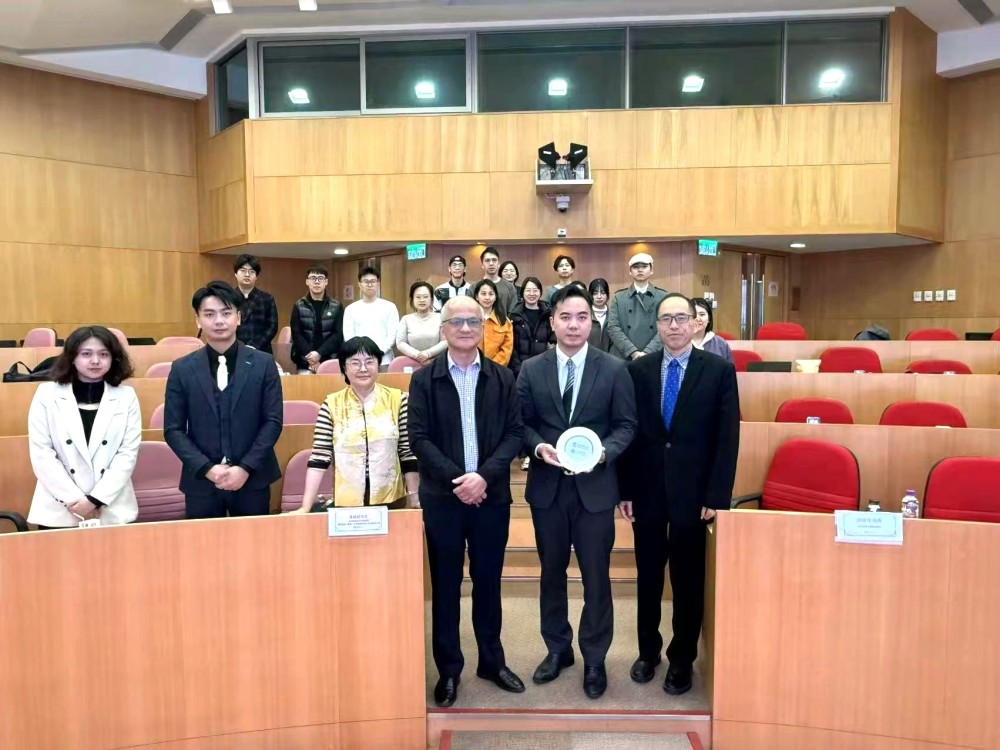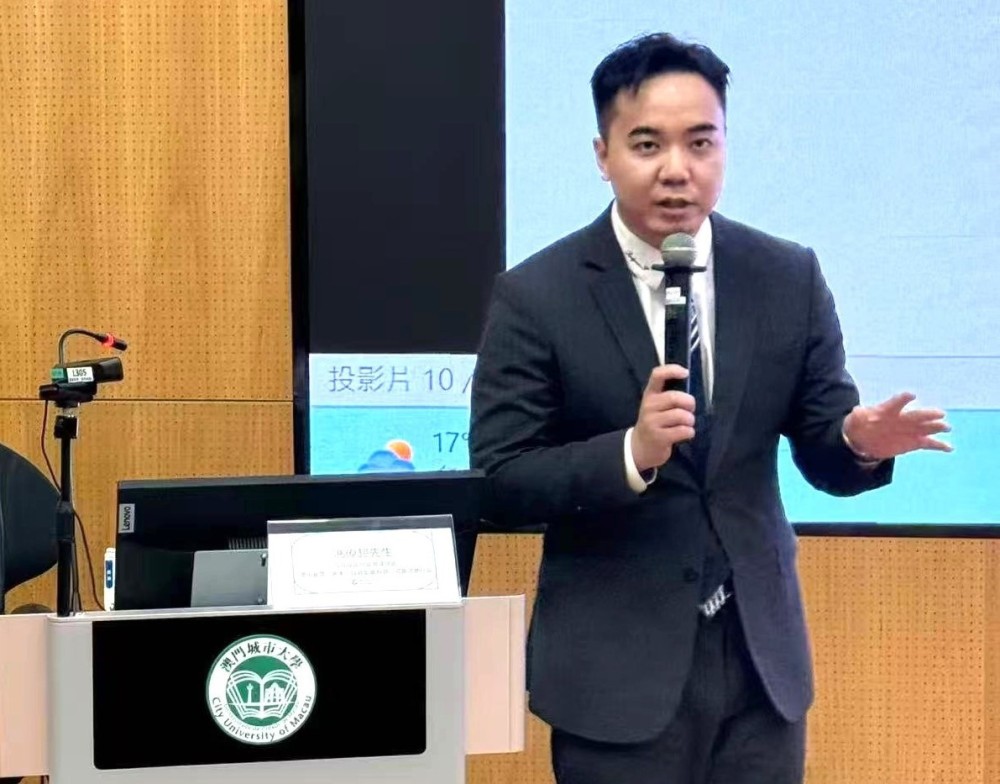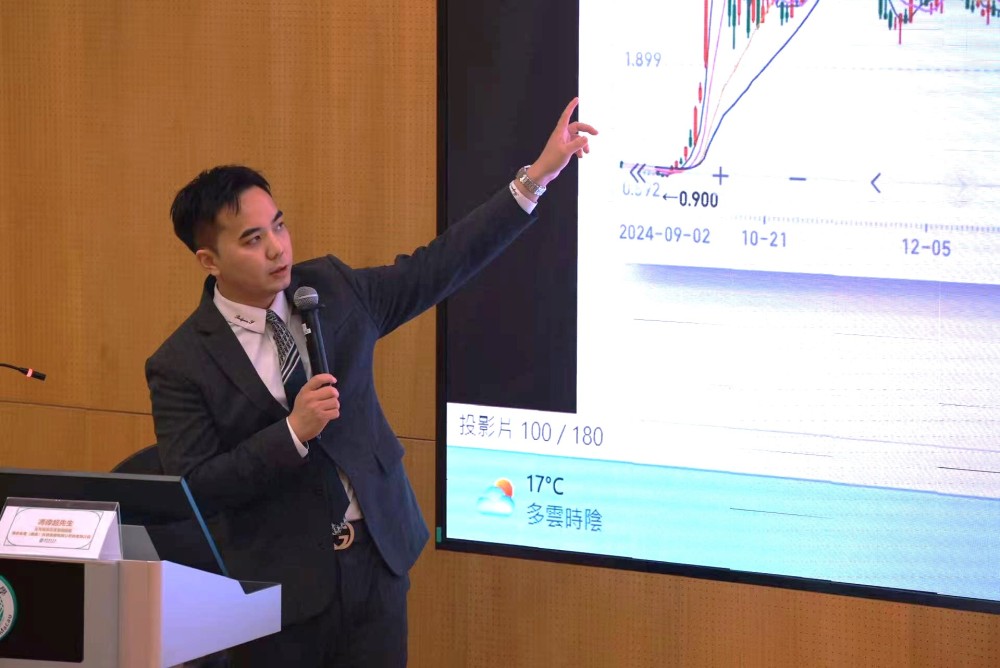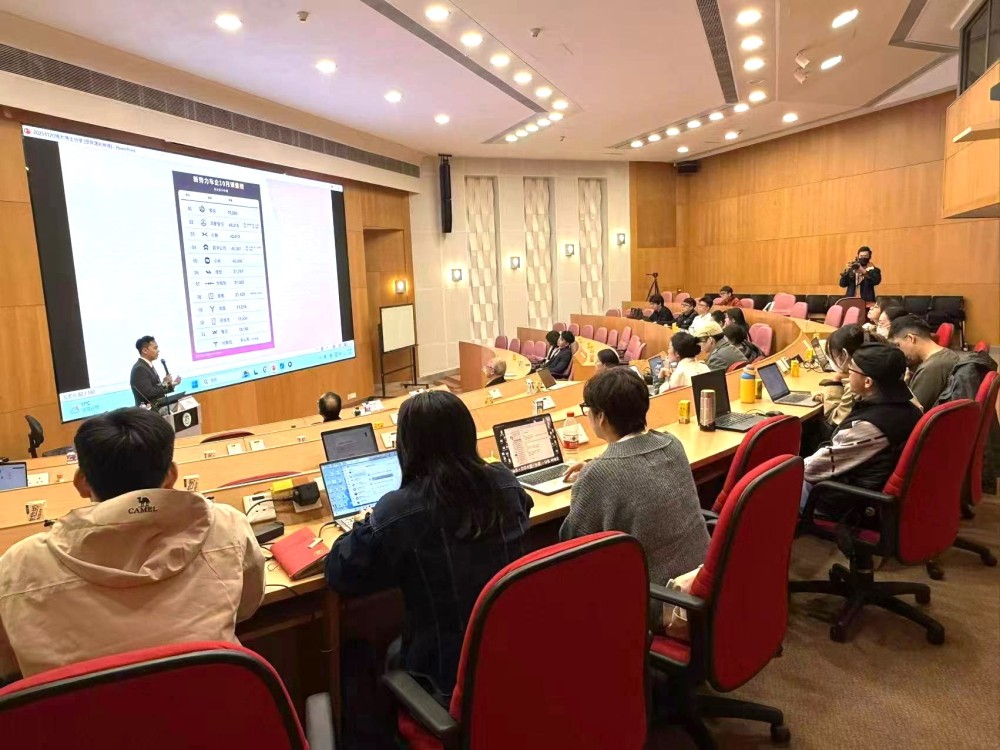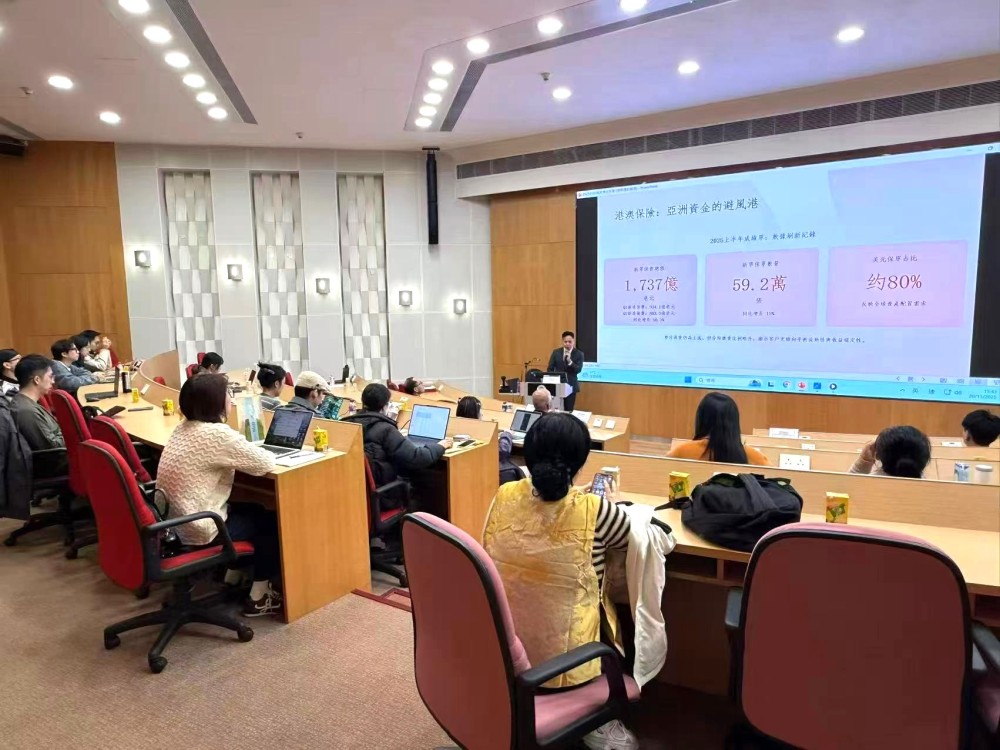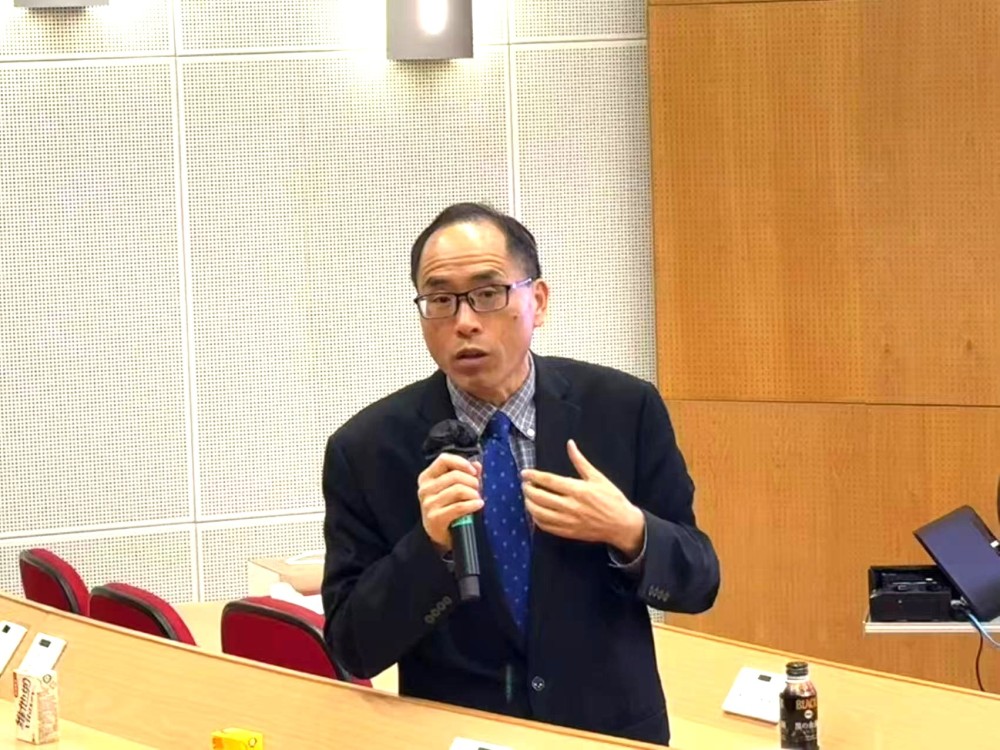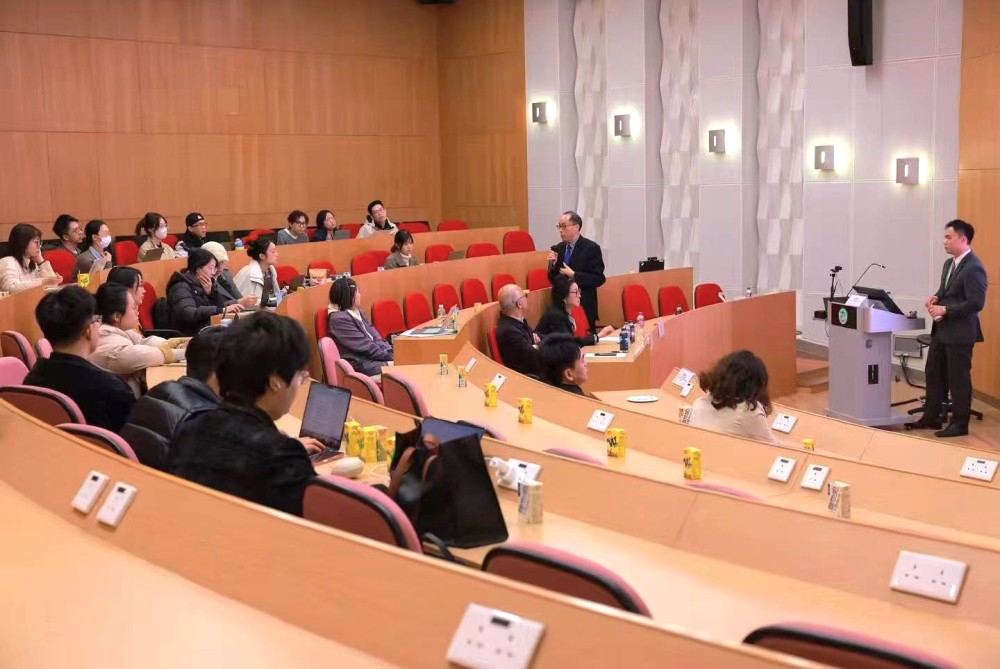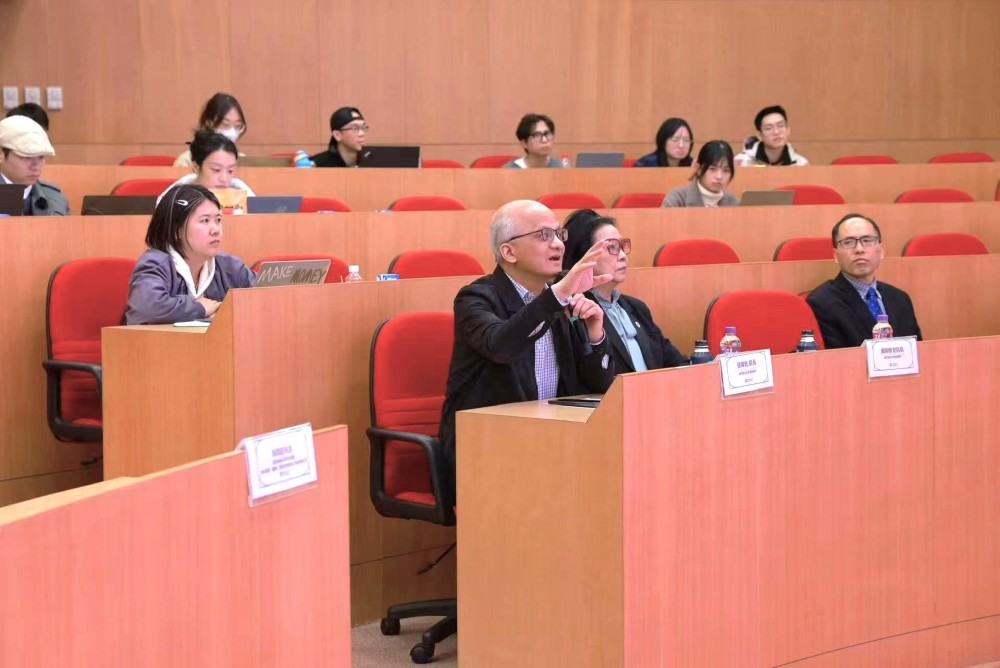On November 20, 2025, the Faculty of Finance of City University of Macau held a finance seminar at Ho Yin Conference Center on Taipa Campus. The seminar featured Mr. Rodgers Feng, Director of AIA Wealth Management and CEO of Australia-China Financial Management, was invited as the keynote speaker. The seminar focused on the theme "Global Trends in Insurance: Opportunities and Challenges for the Hong Kong and Macao Insurance Industry". Distinguished guests included Dean Adrian Cheung, Associate Dean Eva Khong and Associate Professor Yinggui Wang of the Faculty of Finance.
During the seminar, Mr. Rodgers Feng provided an in-depth analysis of global insurance industry trends, with a specific focus on the unique opportunities and challenges facing the insurance sectors in Hong Kong and Macau within the current environment. As the global economic and technological landscape undergoes rapid changes, the insurance industry, a crucial pillar of the financial system, is facing structural transformation. While the global insurance industry is developing steadily, the markets in Hong Kong and Macau present both opportunities and challenges. The industry is experiencing stable growth, accompanied by rising demand for asset allocation. According to data from the first half of 2025, the Hong Kong insurance market performed strongly, with total new business premiums reaching HKD 173.7 billion, a year-on-year increase of 50.3%. Notably, US dollar-denominated policies accounted for approximately 80% of this figure, reflecting a continued strengthening in global asset allocation demand. Leveraging their mature market mechanisms, international regulatory frameworks, and advantageous geographical locations, Hong Kong and Macau have become "safe havens" for Asian capital. Compared to the mainland Chinese insurance market, insurance products in Hong Kong and Macau hold a significant advantage in terms of yield, with average returns reaching 6.5%, compared to only 2-3% in mainland China. Furthermore, the regulatory environment in Hong Kong and Macau is more robust, and the variety of insurance products is more diverse, covering critical illness, medical, life insurance, savings, and fund-linked products, catering to the needs of different clients. Insurance companies also utilize professional investment teams to conduct global asset allocation, enhancing long-term value.
Mr. Feng pointed out that, despite the positive outlook for the insurance industry, the sectors in Hong Kong and Macau also face challenges from the external economic environment. Persistent global inflationary pressures, high uncertainty regarding US monetary policy, coupled with the mainland Chinese economy entering a deflationary cycle and an incomplete clearing of the real estate market – these factors could all impact the investment returns and risk management of insurance funds. Simultaneously, Mr. Feng also highlighted that artificial intelligence is driving industrial transformation and rapidly altering the global industrial structure. However, the consequent energy consumption and infrastructure demands have also become new variables that the insurance industry must consider in its investment planning. Finally, Mr. Feng suggested that in the current economic climate, investors should appropriately reduce debt and high-risk assets, increase allocations to stable instruments such as savings insurance, bonds, and gold, and consider deploying capital into core assets like US and Hong Kong stocks during market pullbacks. He also emphasized "making quality a habit, letting time realize value," encouraging students to cultivate positive traits such as integrity, honesty, and proactiveness, to become "people worth investing in."
During the Q&A session, Mr. Feng actively interacted with the students. The students enthusiastically asked questions and expressed that the opportunity to engage with industry professionals was highly beneficial, looking forward to more practical industry experiences. The faculty and students once again expressed their gratitude to Mr. Rodgers Feng for his sharing and guidance, which provided the students with a valuable lesson.



